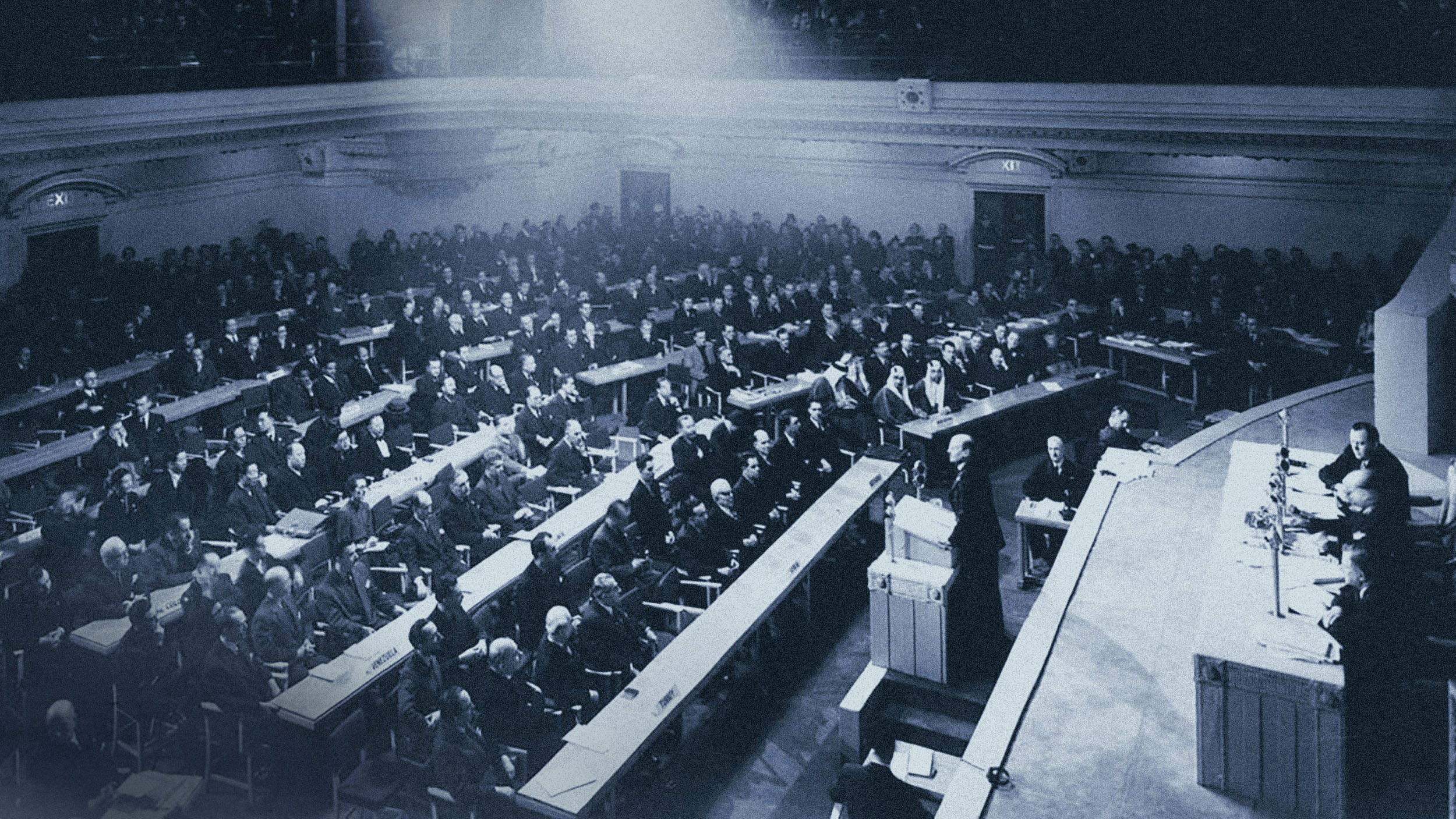
The first session of the United Nations General Assembly, held on Jan. 10, 1946, at Central Hall in London.
Human rights — ‘vision and reality’
Scholars reflect on movement 75 years after landmark document adopted by U.N.
As the Universal Declaration of Human Rights — adopted by the U.N. in the wake of World War II — turns 75, Harvard’s Carr Center marks the anniversary with a publication weighing the history and future of the human rights movement.
Ninety Harvard scholars contributed essays to “Making a Movement.” They focus on themes of racial justice, economic equality, women’s rights, LGBTQ rights, migration, climate change, advancing technology, and more. Below is just a small sample.
‘The creation of such a document must count among the greatest achievements in human history.’
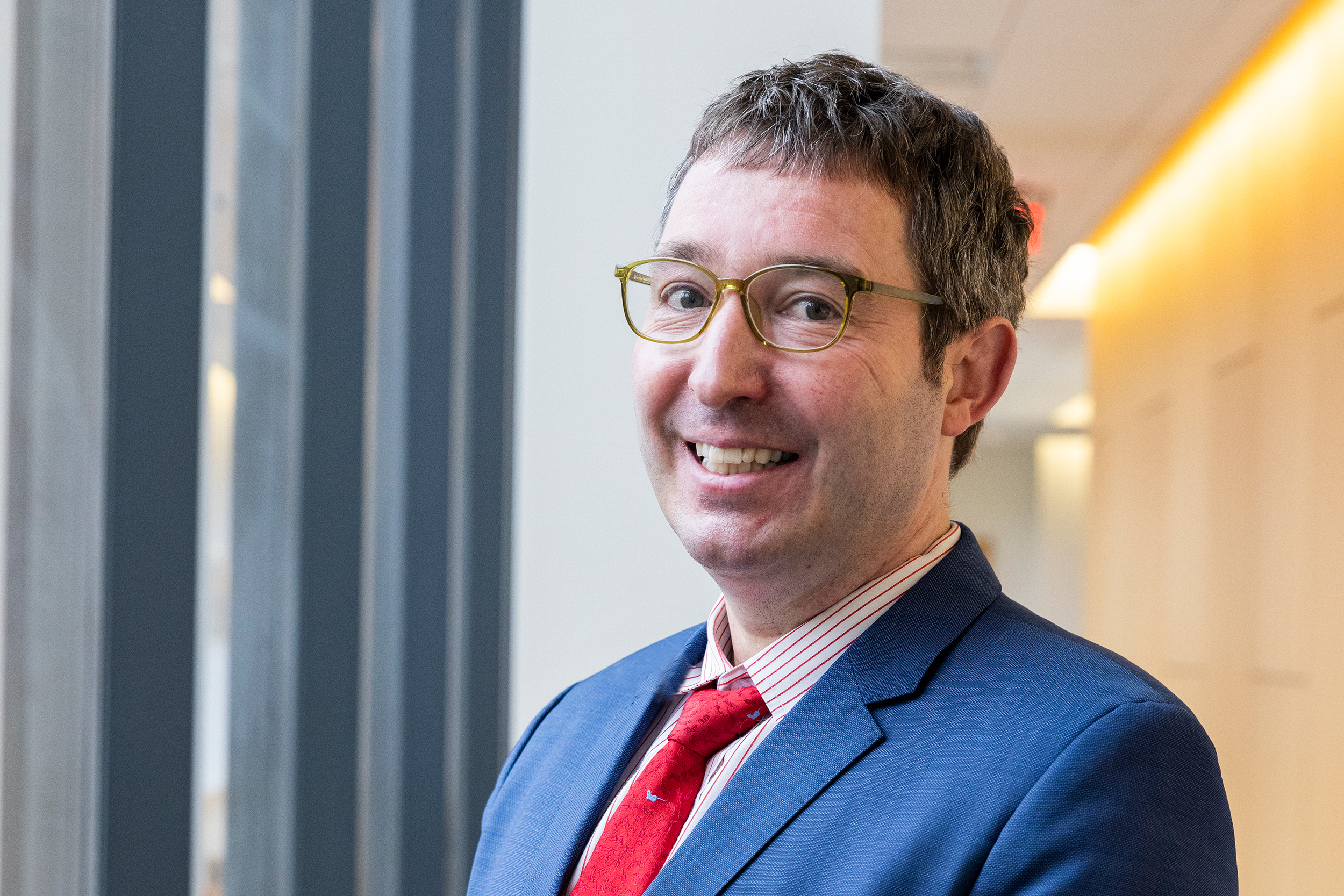
Mathias Risse, Director, Carr Center for Human Rights Policy; Berthold Beitz Professor in Human Rights, Global Affairs and Philosophy, Harvard Kennedy School
In 2023, the international community celebrates the 75th anniversary of the Universal Declaration of Human Rights (UDHR). The creation of such a document — its mere existence — must count among the greatest achievements in human history. At a human rights center like the Carr Center for Human Rights Policy, we of course question whether the world looks anything like what the UDHR envisages. The UDHR gave rise to an enormous volume of international and domestic law that created judicial realities: Institutions have been founded to protect and advance human rights, ranging from regional human rights regimes to the International Criminal Court; human rights standards have been used for performance assessments; a sprawling system of civil society organizations has been created, again both internationally and domestically; and large numbers of people around the world have grown to care about human rights, one way or another. The human rights movement will always register many more shortfalls than achievements, but it would miss its purpose if it did not. Regardless, the change that these decades of developments have brought is very real.
‘Human rights once upon a time was just a phrase, then it became movements around the world.’
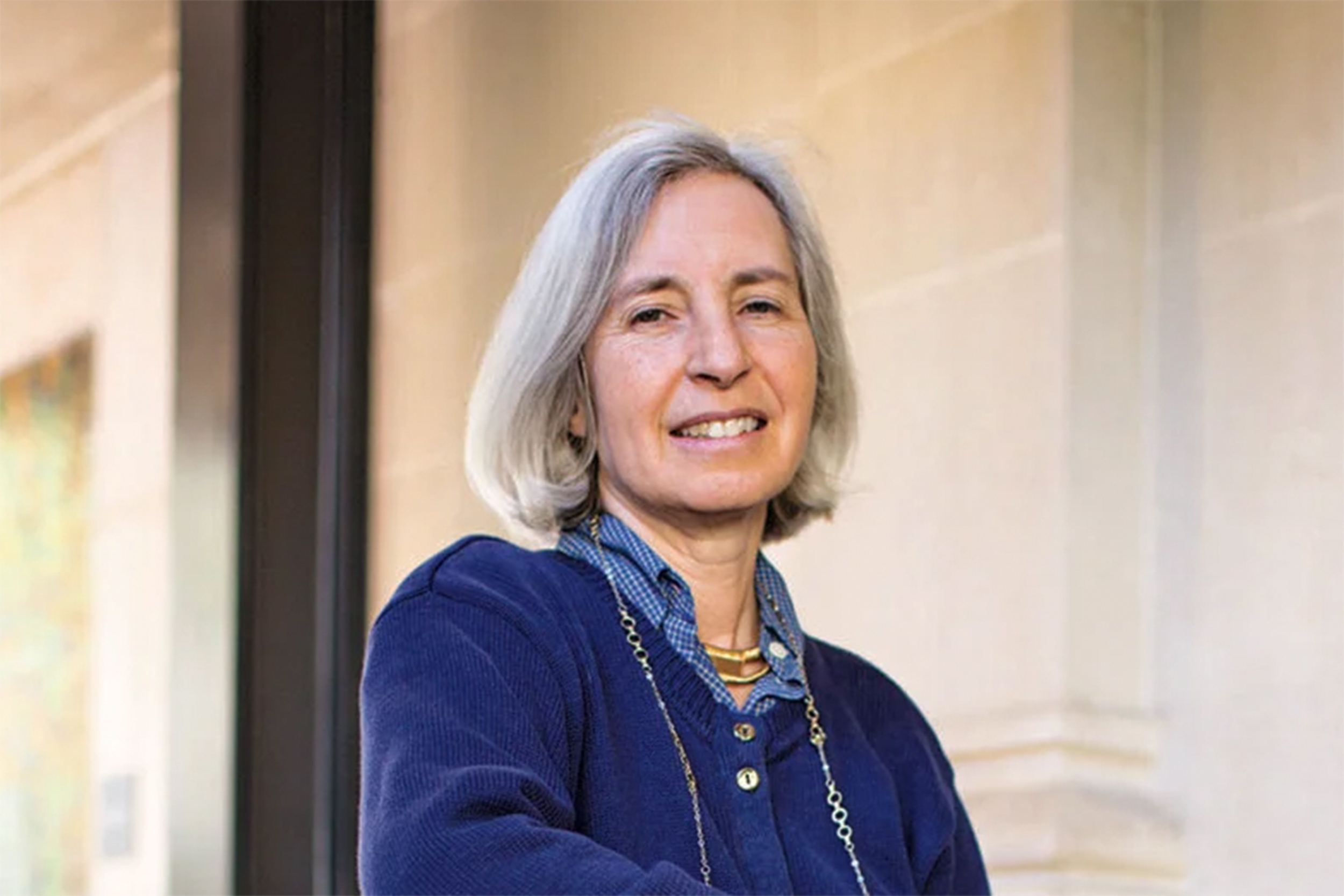
Martha Minow, 300th Anniversary University Professor, Harvard University
The Declaration alone cannot close the distance between its vision and reality. It does not even provide an accountability mechanism to document the shortfall. Nonetheless, the Declaration is not just a document sitting behind glass, framed on walls. Human rights once upon a time was just a phrase, then it became movements around the world, then it animated laws, organized commissions that engage in fact-finding and judgments, then it became something we talk about at dinner tables and teach to children who learn to infuse the language with their own energy and hopes. Human rights teaching, scholarship, advocacy, and institutions have given voice to dreams, changed lives, and planted seeds that continue to grow, even when the vision seems distant from reality.
‘As systems of oppression and repression were dismantled during the Civil Rights era, they were replaced by other institutions of racial and class domination.’
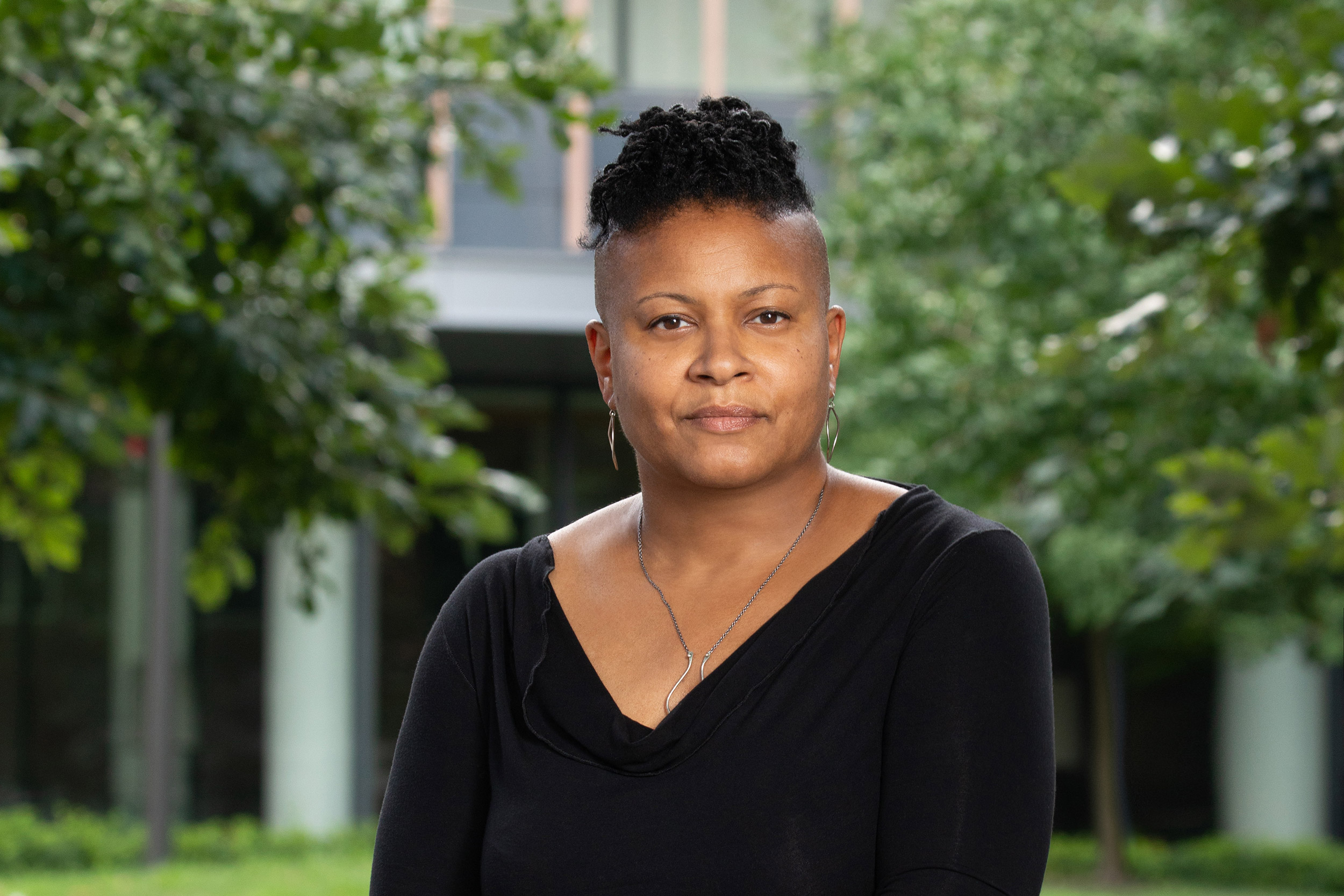
Sandra Susan Smith, Daniel and Florence Guggenheim Professor of Criminal Justice, Harvard Kennedy School
Since the adoption of the Universal Declaration of Human Rights in 1948, we have witnessed a number of truly inspiring accomplishments, the result of civil rights and racial justice movements across the globe. Clear signs of progress, however, should not overshadow the harsh fact that disparate and brutal treatment remains a fact of life for members of many communities defined by race, ethnicity, and class. In the U.S., for instance, as systems of oppression and repression were dismantled during the Civil Rights era, they were replaced by other institutions of racial and class domination. Primary among them was the criminal legal system, with race- and class-based over-policing; dehumanizing mass incarceration; and mass surveillance in targeted communities as the institution’s many tools of containment, control, and extraction.
‘Accountability matters.’
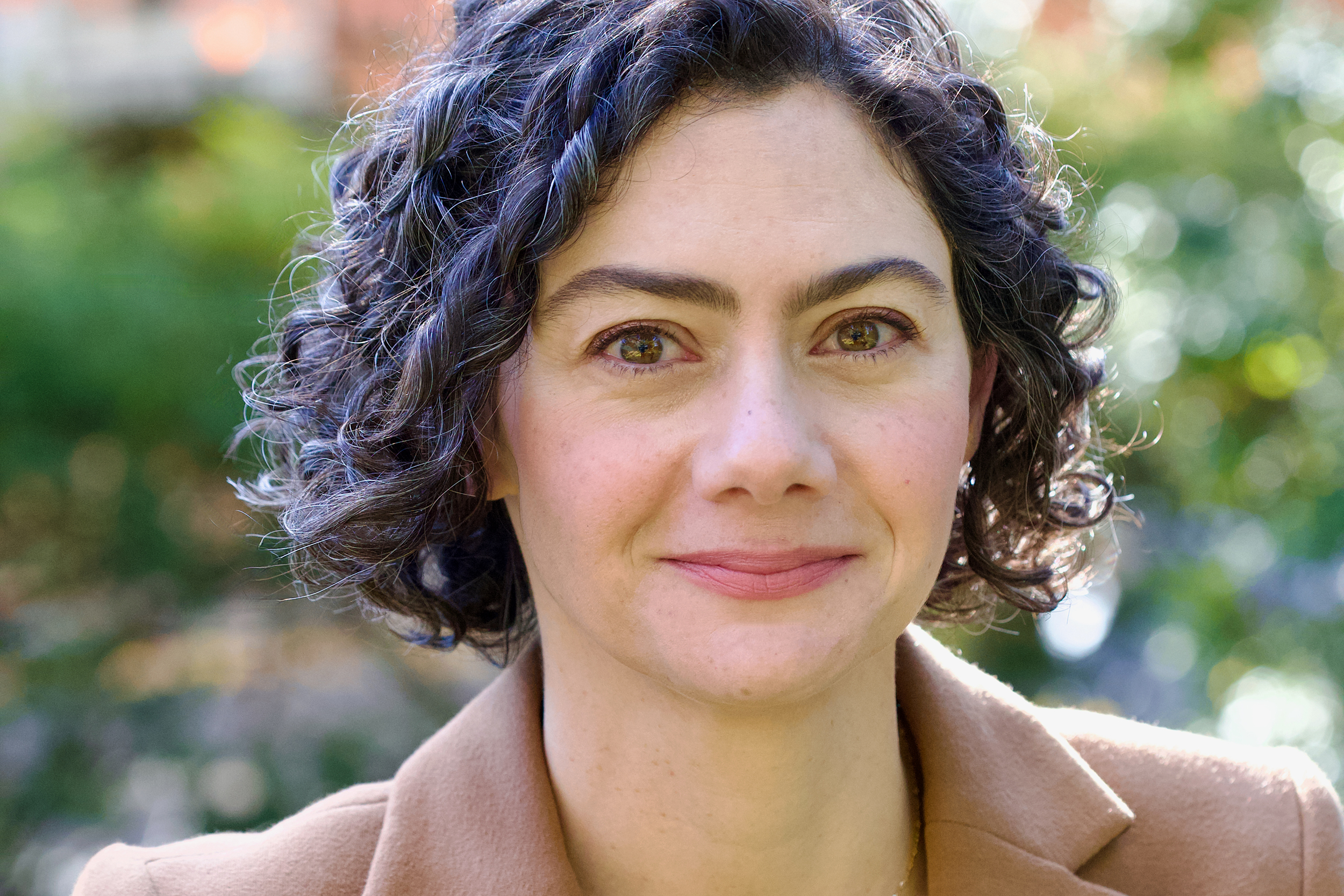
Susan Farbstein, Clinical Professor of Law; Director, International Human Rights Clinic, Harvard Law School
Accountability matters because it shames and deters bad actors, calls attention to injustice, and sends a message that impunity will not be tolerated. Accountability shapes the historical record, creates a shared understanding of past harms, and lays a foundation upon which societies can reconcile and recover. Accountability reinforces the legitimacy and effectiveness of international human rights law. All of this is true. Yet, in my experience as a human rights practitioner, accountability matters most to the survivors who do the hard work of seeking justice.
‘Human rights are inseparable from organizations.’
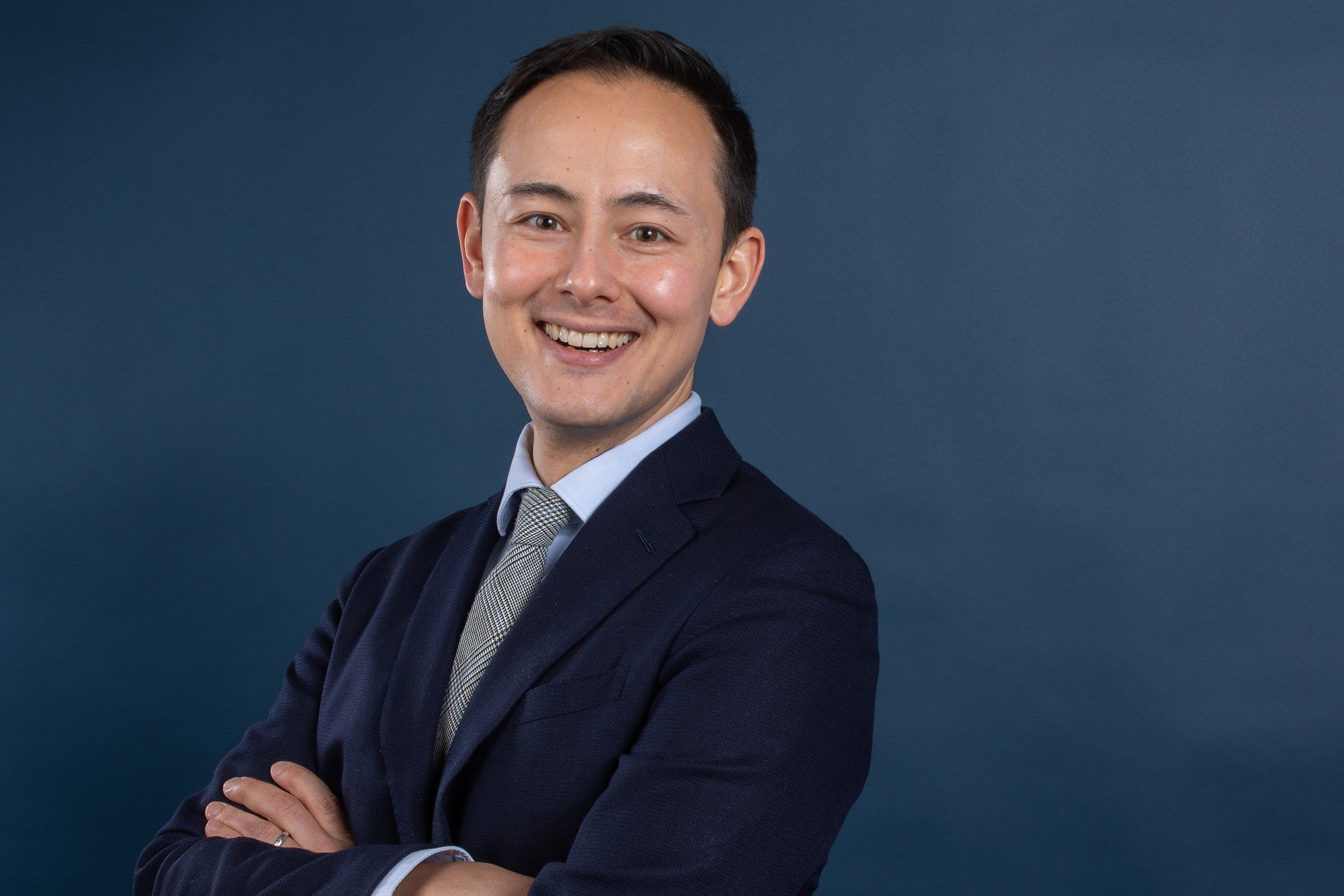
Matthew Lee, Associate Professor, Harvard Kennedy School
When thinking about human rights, my instinct as an organizational scholar is to think about specific businesses, nonprofits, and government organizations — how do their activities, their leadership, and the way they are regulated serve to exploit or liberate human beings? Human rights are inseparable from organizations because we live in a society of organizations — we are employed by organizations, consume the products and services of organizations, and are ruled by organizations. Perhaps nobody recognized this with greater acuity than our late Harvard Kennedy School colleague Professor John Ruggie, who spent the better part of his career developing and advocating for normative principles to govern business practices related to human rights.
‘Unfortunately, progress in these regions has also sparked a backlash in places where LGBTQ acceptance is scarce and often criminalized.’
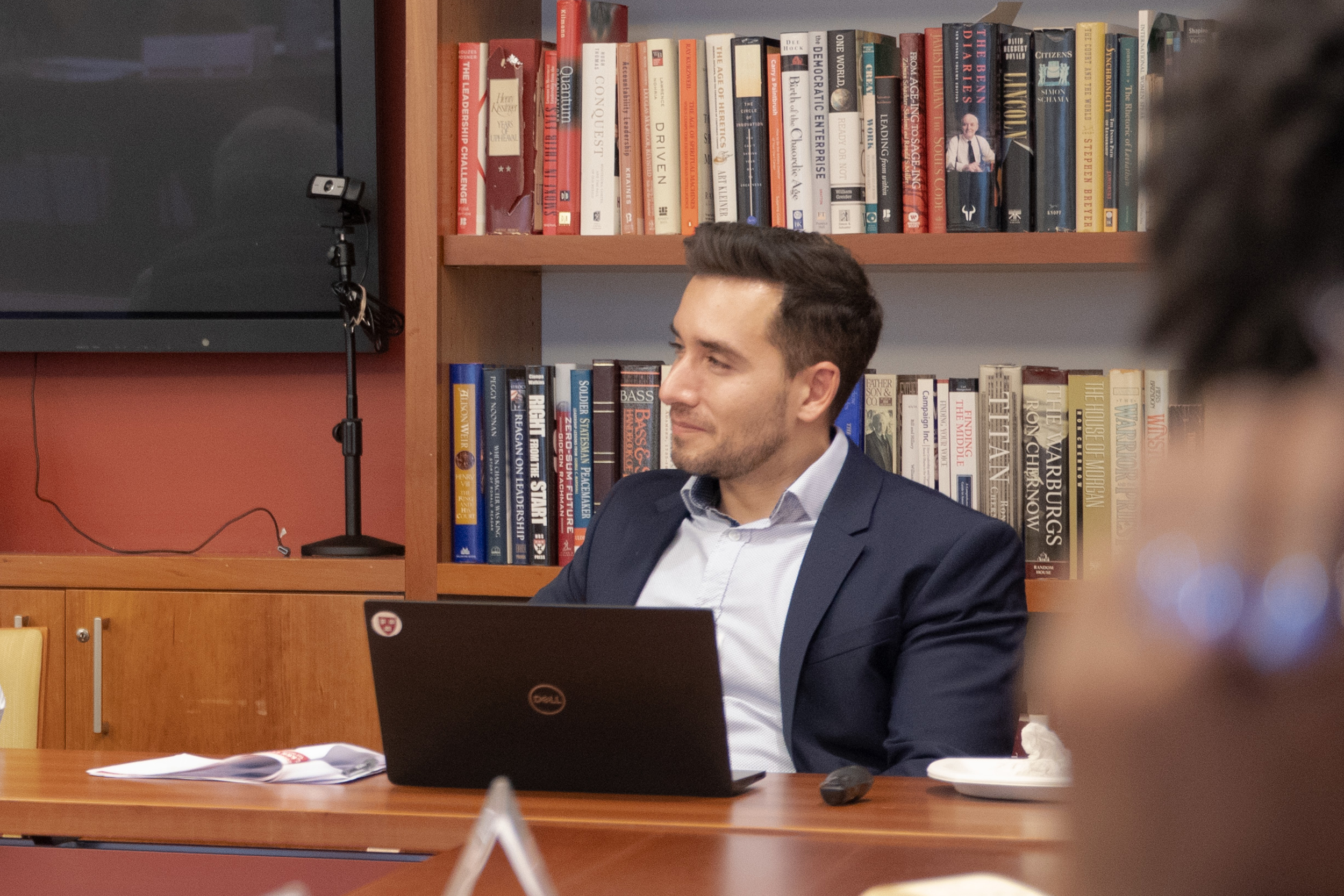
Diego Garcia Blum, Social Change Fellow, Center for Public Leadership, Harvard Kennedy School
Over the past two decades, notable progress has been made in LGBTQ human rights in North America, Western Europe, and some parts of Latin America. However, even in these places, there are still gaps in discrimination protections, ongoing disparities in the well-being of LGBTQ youth, and active movements opposing these rights — especially for transgender people. Unfortunately, progress in these regions has also sparked a backlash in places where LGBTQ acceptance is scarce and often criminalized. Most alarming is a new set of laws that aim to outlaw LGBTQ advocacy. In May of 2023, Uganda passed a law that not only outlawed LGBTQ advocacy, but also identifying as LGBTQ. Similar laws have been introduced in legislatures all over the world. In some countries, existing laws that outlaw same-sex relationships are now being used to suppress advocacy as well. These repressive measures are often rooted in myths, misconceptions, and misunderstandings about LGBTQ individuals, including beliefs that being LGBTQ is a choice, a condition that can be “fixed,” a Western invention, or an immoral social influence. In many places, these misunderstandings go unchecked, spreading from leadership and amplified by the media. Identifying and dispelling these myths is necessary in safeguarding the rights of LGBTQ individuals.
‘Violence won’t stay in Donbas, Abkhazia, or the Xinjiang Uyghur region; it will spread far beyond.’

Maria Kuznetsova, Scholar at Risk, Carr Center for Human Rights Policy
Like many other human rights defenders, I cannot return to my home country due to a possibility of imprisonment. I had to leave Russia before the invasion of Ukraine. Talking to many international leaders in the months before the invasion of Ukraine, I saw a huge reluctance to act. This inaction proved costly for humanity as a whole. So, here is what I want to say: Violence never stays inside. Violence won’t stay in Donbas, Abkhazia, or the Xinjiang Uyghur region; it will spread far beyond “deathworlds” when authoritarian states feel they will go unpunished. I strongly believe that world leaders should stop dividing dictators into “ours” and “theirs” and see authoritarianism as a global threat, especially in a century of rapid technological and economic growth, where new surveillance and control technologies make peaceful regime change even harder.
‘A sophisticated realist understands that, in addition to hard military and economic power, the soft power of attraction is also important.’
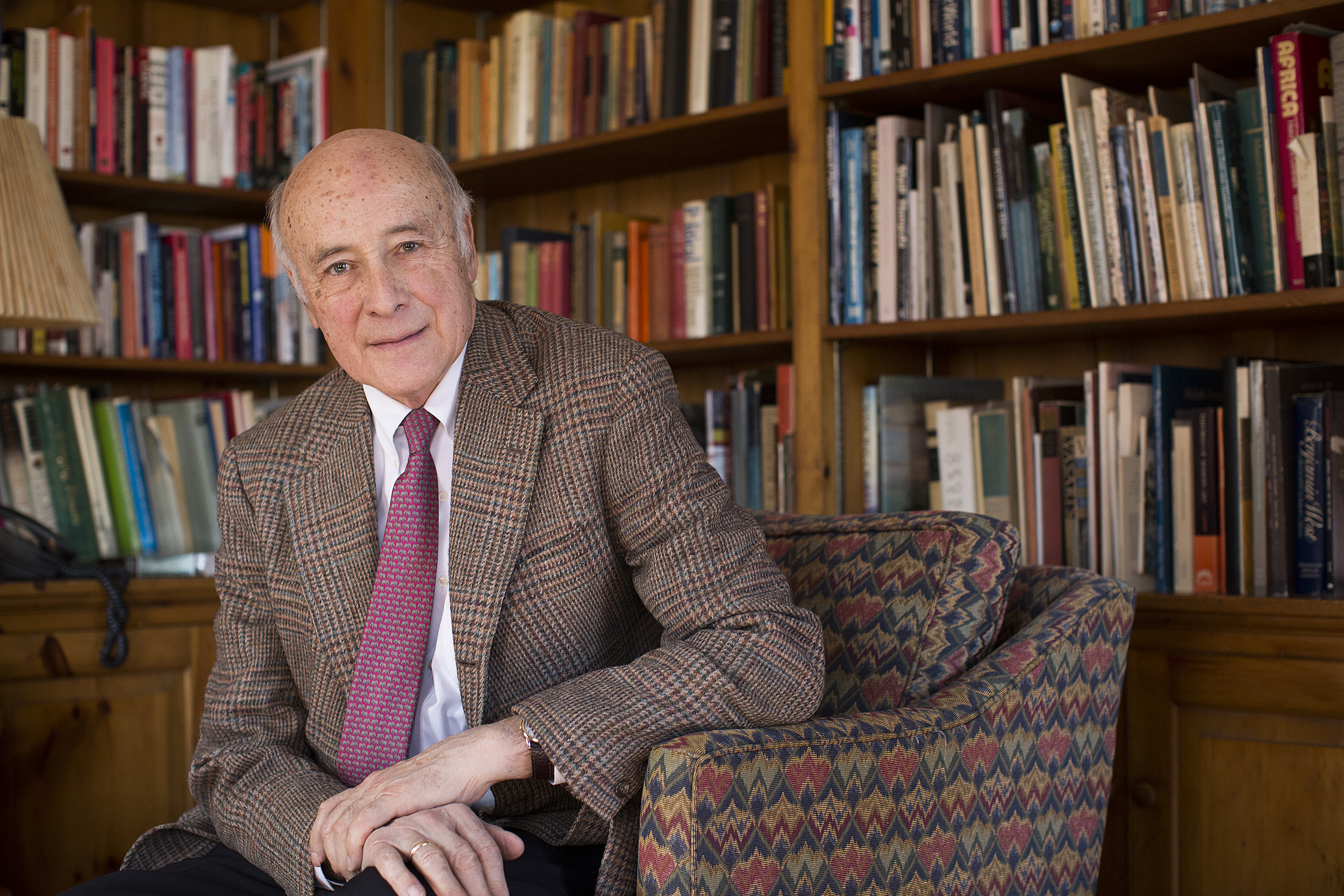
File photo by Stephanie Mitchell/Harvard Staff Photographer
Joseph Nye Jr., Dean Emeritus, Harvard Kennedy School; author, “A Life in the American Century”
Realists sometimes complain that human rights interfere with American power in the harsh world of international relations. However, a sophisticated realist understands that, in addition to hard military and economic power, the soft power of attraction is also important. And human rights not only define us as a people, but they can also enhance our soft power. Survival and security are not the only important aspects of world politics. Polls show a majority of Americans also want the U.S. to pursue altruistic, humanitarian aims internationally. Many Americans have a general sense of a human community and support a foreign policy based, not just on international legal obligations, but upon moral considerations. Trade-offs among priorities and objectives are at the heart of an effective foreign policy, and this creates problems not only for our human rights values but also for our soft power. Nothing dissolves soft power more effectively than charges of hypocrisy. The result is that human rights are an essential part of foreign policy, but their effective inclusion is never an easy task.
‘For rights to be truly secure, they must be ingrained in our hearts as well as guarded by our jurists.’
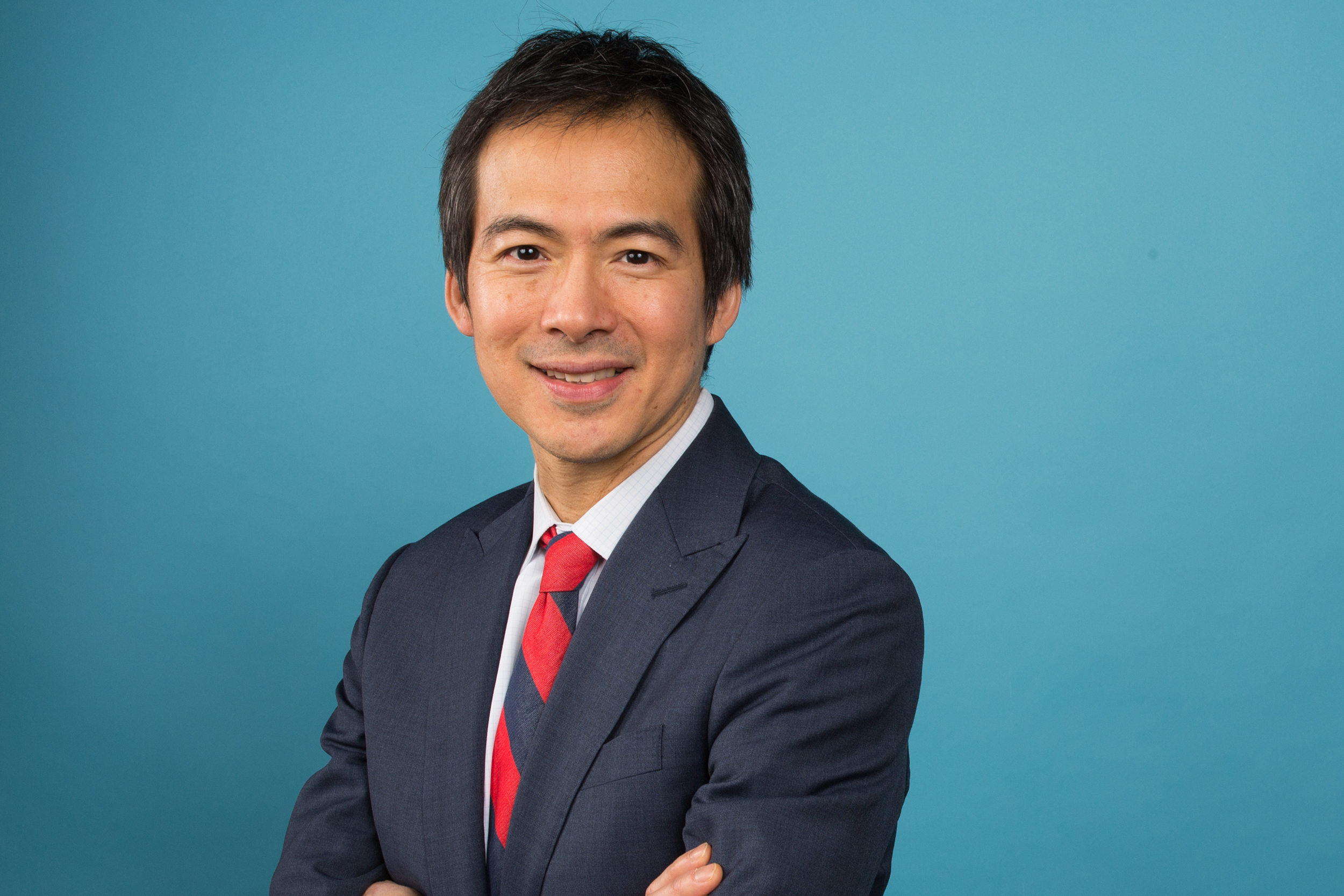
Archon Fung, Director, Ash Center for Democratic Governance and Innovation; Winthrop Laflin McCormack Professor of Citizenship and Self-Government, Harvard Kennedy School
The UDHR was one of humanity’s milestone achievements. Its global affirmation of the pre-eminent importance of human dignity has guided and constrained the behavior of governments, international organizations, advocates, and, most importantly, the major and minor tyrants who would violate individuals’ rights for the sake of their own aggrandizement. For rights to be truly secure, they must be ingrained in our hearts as well as guarded by our jurists. This first-best path of rights that are championed by democratic majorities rather than imposed upon them is never easily achieved and sometimes out of reach. But history shows many examples in which the advance of democracy and rights go together: women’s suffrage in 1920, the Civil Rights Act of 1964, and the Voting Rights Act of 1965. Perhaps the fundamental contribution of the UDHR was to inscribe those aspirations in the hearts of everyone around the world.
‘How can we ensure that expanding the frontiers of knowledge and toolmaking will emancipate rather than hurt or enslave humanity?’
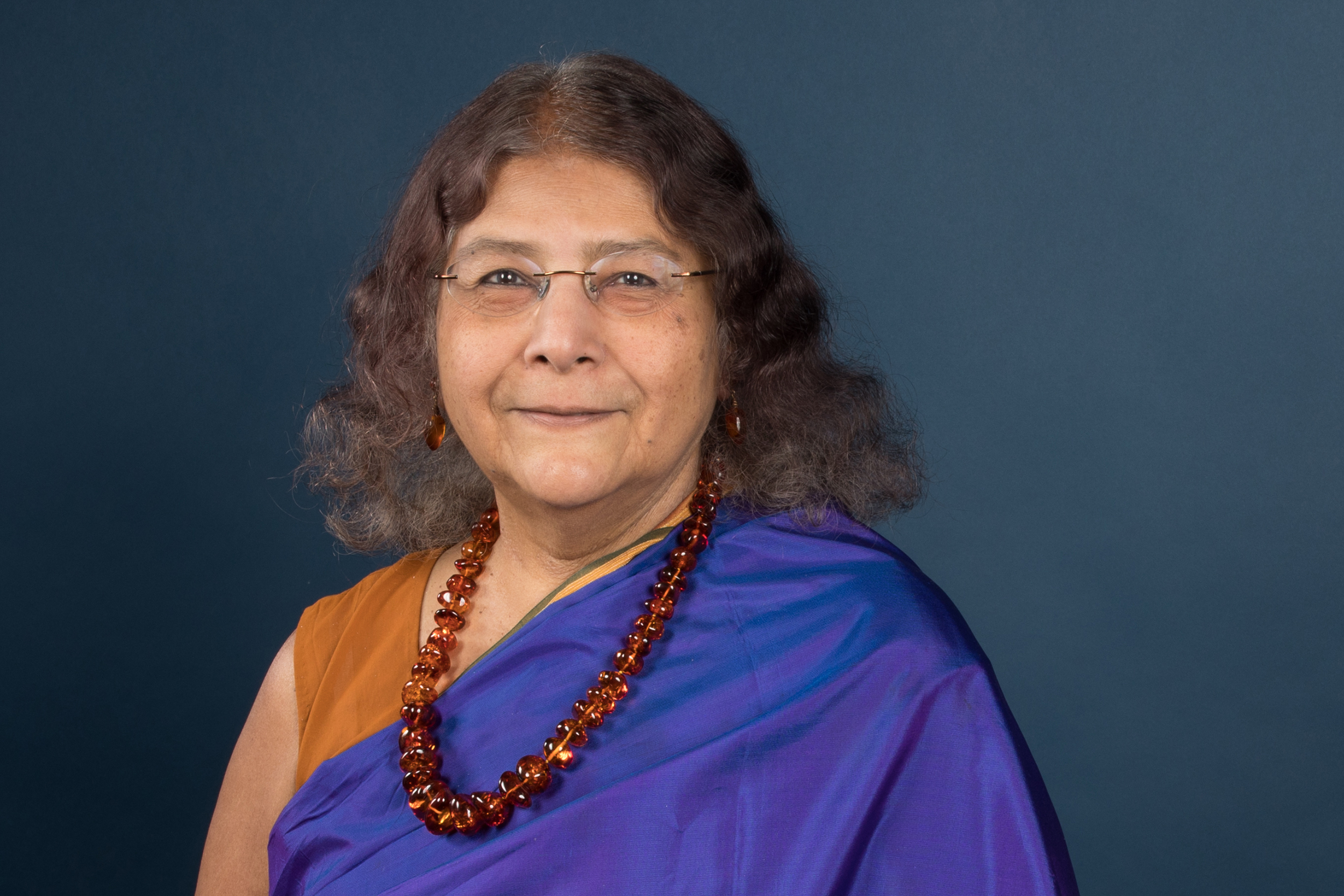
Sheila Jasanoff, Pforzheimer Professor of Science and Technology Studies, Harvard Kennedy School
The relationship between science, technology, and human rights is embedded in the oldest myths of Western civilizations, from Adam and Eve’s expulsion from Eden because they ate the forbidden fruit of knowledge to Prometheus’ fateful decision to bring fire to humankind. Implicit in these stories is a paradox that lies at the heart of moral inquiry in the field of Science and Technology Studies (STS): How can we ensure that expanding the frontiers of knowledge and toolmaking will emancipate rather than hurt or enslave humanity? STS embraces the notion that knowledge and technologies which are good for humanity should protect the fundamental pillars of the Universal Declaration of Human Rights (UDHR) — dignity, liberty, equality, and brotherhood — not diminish or compromise them.
‘Climate change is fundamentally an issue of health equity and human rights.’
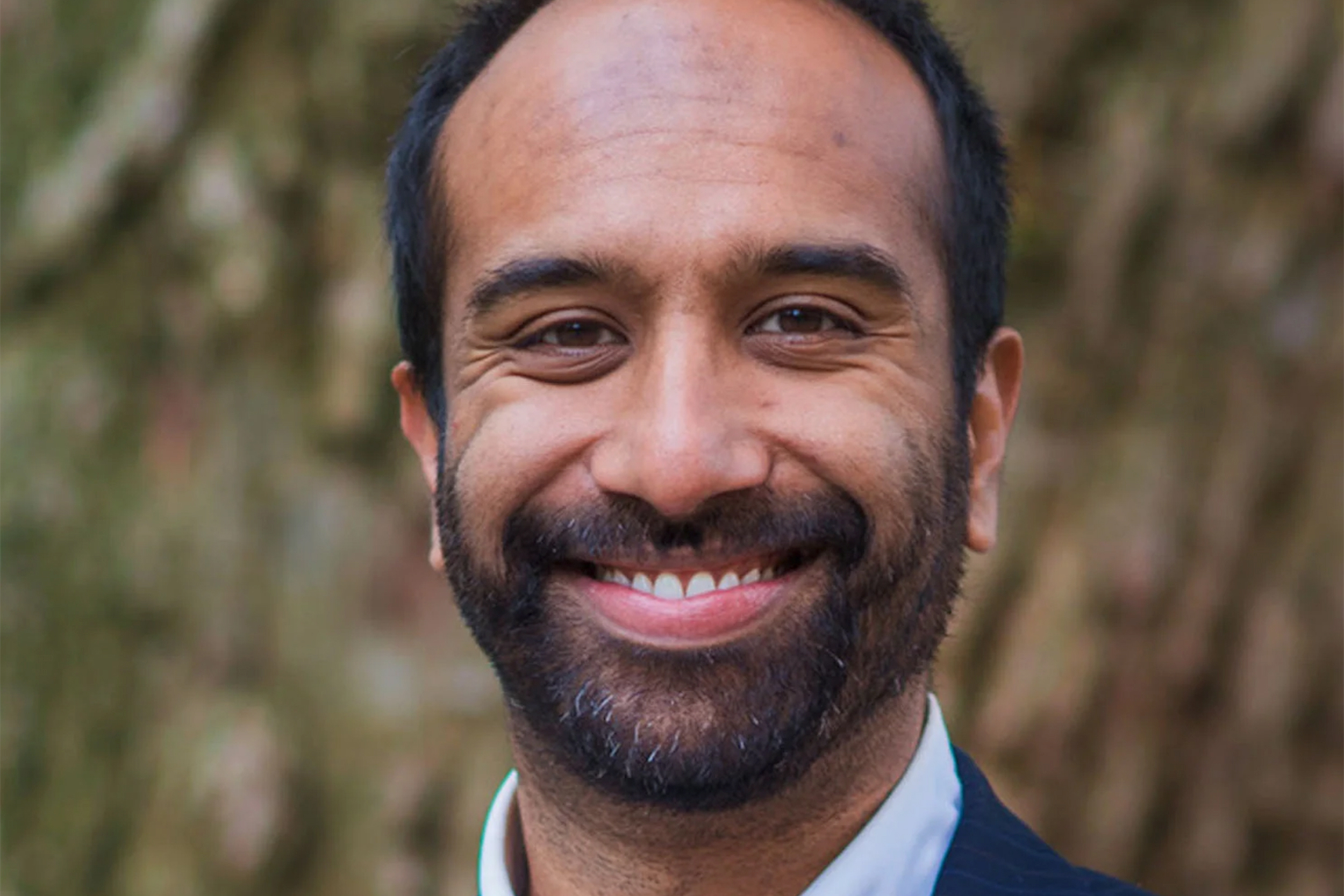
Gaurab Basu, Director of Education and Policy, Center for Climate, Health, and the Global Environment, Harvard T.H. Chan School of Public Health
Despite [the UDHR’s creation], the world continued to extract from our natural resources, which decades later produced the profound new threat of climate change. Seventy-five years later, it is still very unclear whether we will fulfill the promise of the UDHR. Climate change is fundamentally an issue of health equity and human rights. It increases the risk of extreme weather events, food insecurity, water scarcity, infectious diseases, extreme heat, air pollution, mental health disorders, and forced migration. Our global response to climate change will shape health and social stability for generations to come. The UDHR should not be a static document, but rather a call to action that challenges the world to continually identify the risks to humanity and cultivate the ambition to actively transform the world towards health and justice. This will require us to understand that the health and human rights of human beings are dependent on the health and well-being of our planet.




